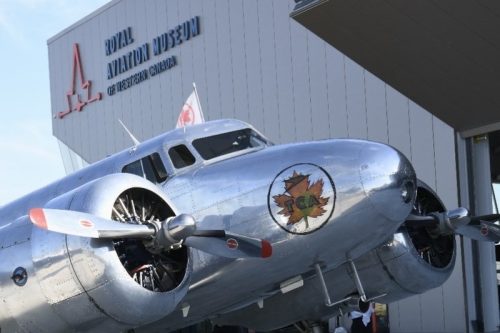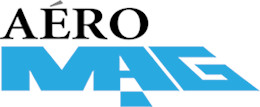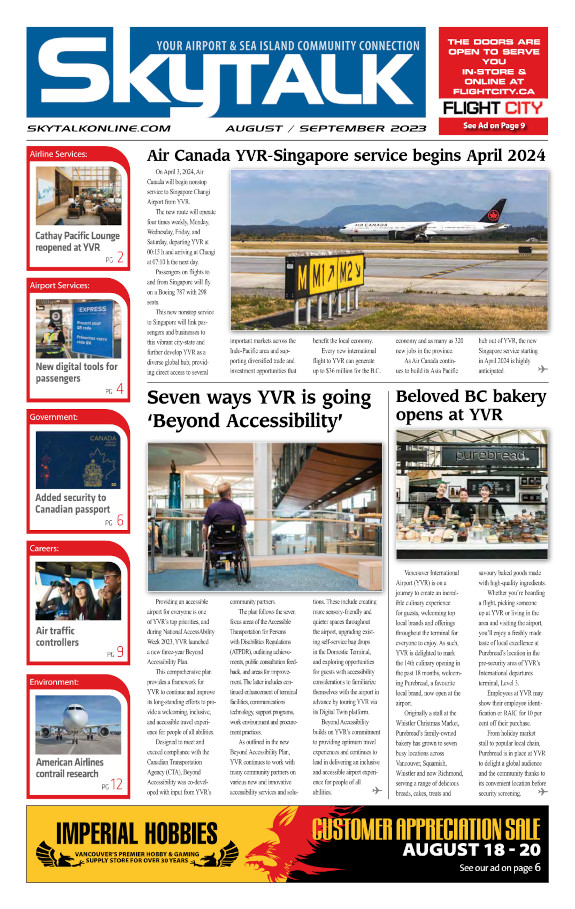
On Sept. 7, celebrating its 85th anniversary, Air Canada donated its historic aircraft, an original Lockheed L-10A Electra airplane, to Winnipeg’s Royal Aviation Museum of Western Canada.
The iconic aircraft, the first fleet type flown by the carrier, made its final journey as it taxied from the Air Canada hangar at Winnipeg International Airport to the museum at a handover ceremony, where it will go on permanent public display.
The aircraft, with registration CF-TCC, was one of three purchased by Air Canada’s forerunner, Trans-Canada Air Lines (TCA), in 1937 and, until recently, one of only two Lockheed L10-A Electra aircraft still flying worldwide.
Named after a bright star in the Pleiades star cluster, the 10A Electra was the pride of the Lockheed Aircraft Corporation. In the 1930s, this twin-engine, all-metal monoplane was the exciting new face of commercial aviation.
History of CF-TCC
CF-TCC was one of three L-10A aircraft purchased by Trans-Canada Air Lines. The L-10A aircraft type operated TCA’s inaugural flight on September 1, 1937, a 50-minute trip from Vancouver to Seattle carrying mail and two passengers.
TCA had acquired the route plus two Lockheed L‐10A aircraft from Canadian Airways. In that same month, TCA bought three additional Lockheed L‐10A aircraft, brand new, from the Lockheed factory for $73,000 each. Dubbed the “Three Sisters,” these aircraft carried the registrations CF‐TCA, CF‐TCB, and CF‐TCC.
The first aircraft, CF‐TCA, is now at the Canadian Aviation and Space Museum in Ottawa.
CF-TCC last flew in 2018 and was one of two remaining Lockheed L‐10A Electra aircraft still flying worldwide.
After being operated by TCA from 1937 to 1939, TCA sold CF‐TCC to the Department of Transport – Canada. During the next 40 years, private corporations and individuals bought and sold CF-TCC several times.
In 1962, TCA leased CF-TCC, and six original TCA pilots operated a commemorative flight across Canada on TCAs 25th Anniversary.
In 1975, a retired Air Canada employee recognized the faded registration marks on the aircraft while attending an air show in Texas. Air Canada kept track of the plane until 1983, when the airline purchased the aircraft, restored it, and flew it during the Air Canada 50th Anniversary celebrations in 1986. At the end of the Fifty stop Canadian tour, CF‐TCC was featured in the Air Canada pavilion during Expo 86 in Vancouver.
Since 1986, the aircraft has remained in flying condition. Over the years, volunteers and support from the broader aviation community, including Air Canada Maintenance and Flight Operations, have dedicated thousands of hours of personal time and other contributions to keeping CF‐TCC flying for future generations.
When not flying, the aircraft has been based in the Western Canada Aviation Museum in Winnipeg, Manitoba, or stored in Air Canada’s Winnipeg hangar.
On September 21, 2007, it recreated TCA’s first flight from Vancouver to Seattle, marking Air Canada’s 70th anniversary.
In 2012, as part of Air Canada’s 75th Anniversary Celebrations, CF‐TCC appeared at several air shows and public appearances, showcasing Air Canada’s heritage and the history of commercial aviation in Canada.
In 2017 to mark the carrier’s 80th anniversary, Air Canada’s Lockheed 10A took to the skies for a cross-country tour, beginning with a public appearance at the Royal Aviation Museum in Winnipeg. Along the way, the aircraft made stops in Vancouver, Calgary, Edmonton, Saskatoon, Regina, Winnipeg, Thunder Bay, Sudbury, Toronto, Ottawa, Halifax, and Quebec City.
On Sept. 7, 2022, on the occasion of Air Canada’s 85th anniversary, the airline’s Lockheed 10A made its final journey to the Royal Aviation Museum of Western Canada in Winnipeg. CF-TCC was taxied to the Museum from Air Canada’s Hangar by the aircraft’s long-time advocates and volunteers, Retired Captain Robert Giguere, Retired Captain Gerry Norberg, Retired Aircraft Maintenance Engineer George Huntington, and Air Canada Aircraft Maintenance Engineer Mike Clarkson.








